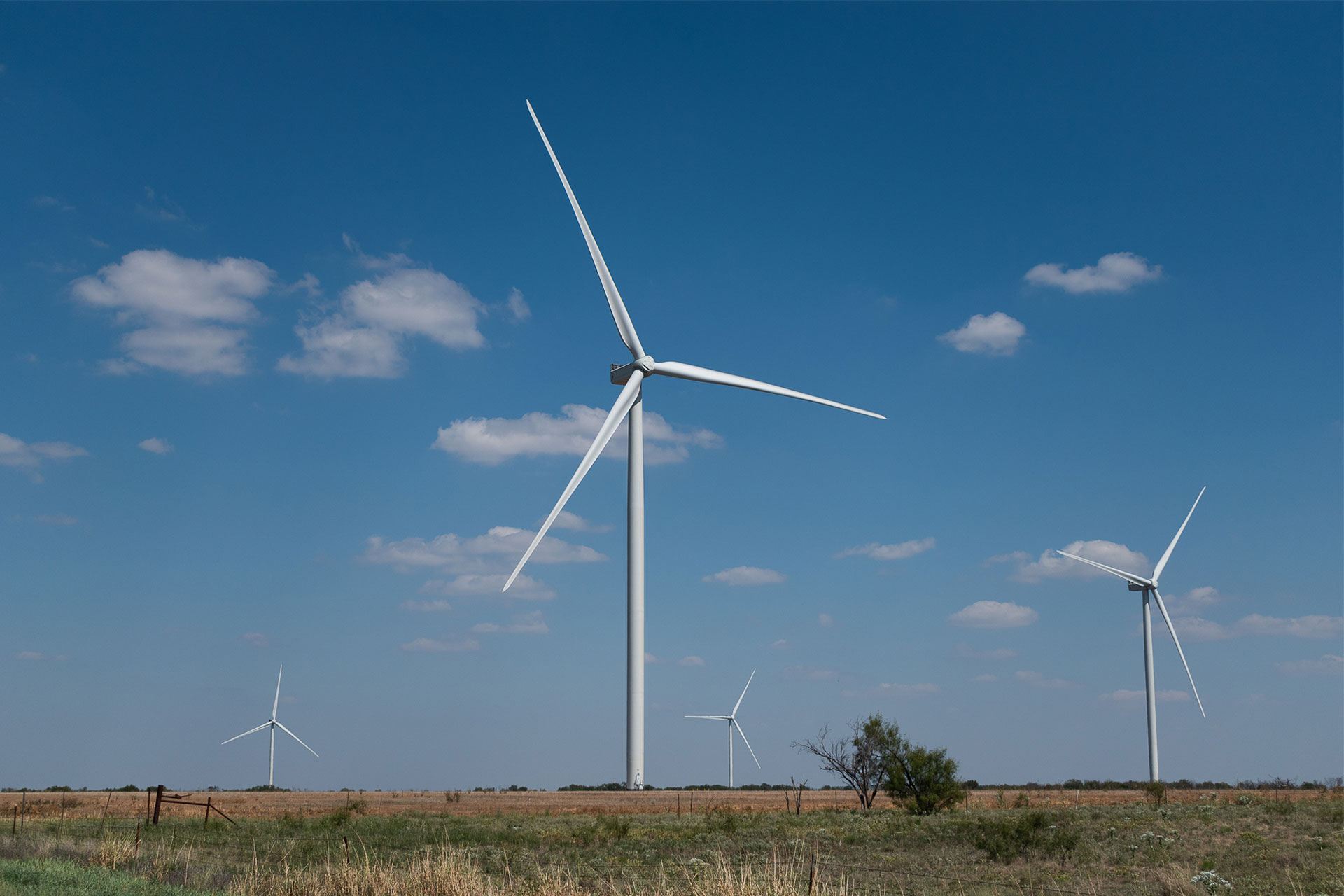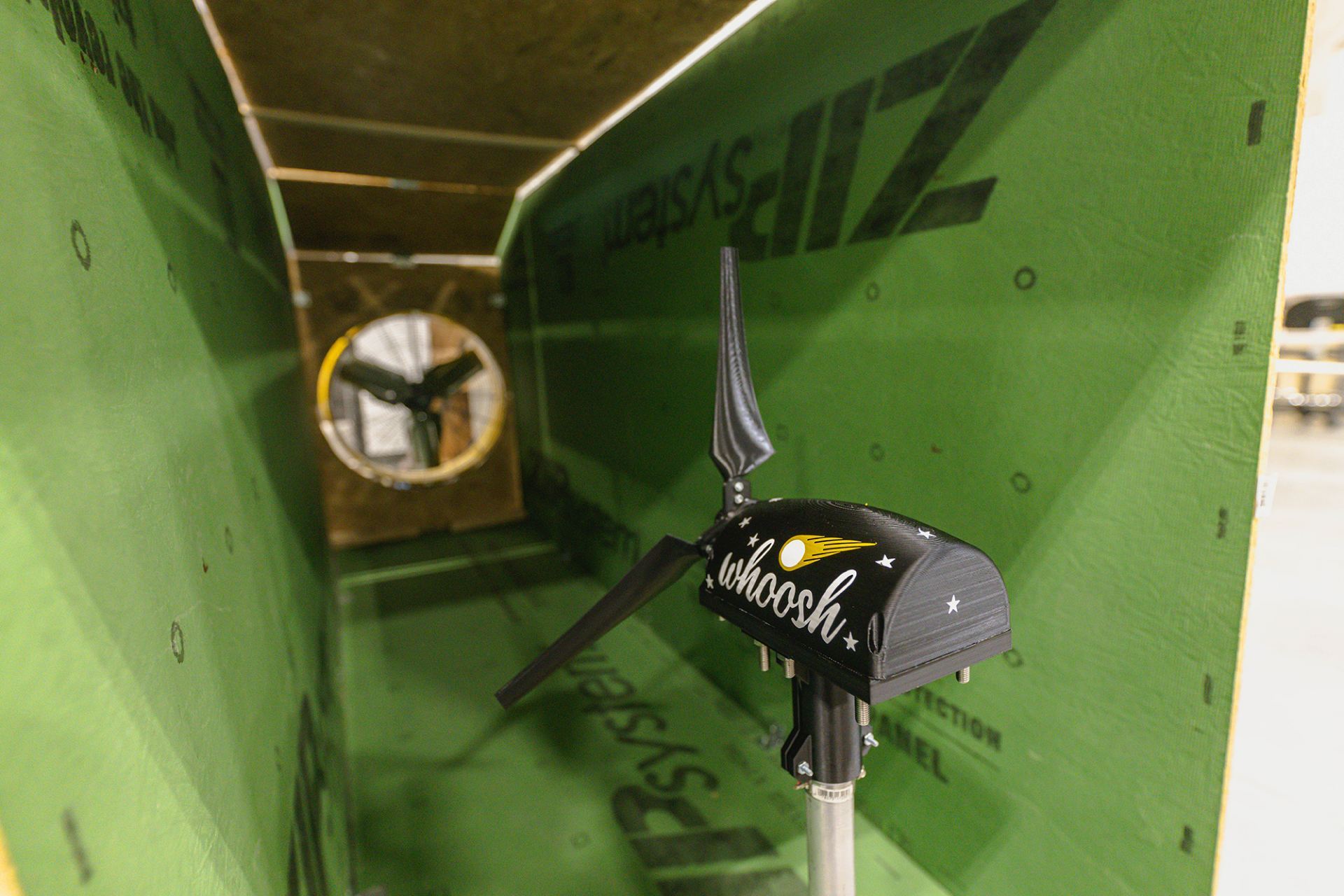
New Forces Power Passion for Wind Energy Research, Student Group

Even as a sophomore, Mirabella Herrera already is gaining research experience at The University of Texas at Dallas as she works on a planning and operational study of a wind and hydrogen power plant.
Herrera, a mechanical engineering student, became interested in wind energy in a thermodynamics class. She joined a National Science Foundation-supported project as one of 10 participants in a new Research Experiences for Undergraduates (REU) in wind energy systems. The 10-week summer program, offered through UT Dallas’ Wind Energy Center, included five students from UTD and the remaining five from other universities.
“When the opportunity came up to work on projects related to wind energy, I wanted to explore the area to see if it could be a possible career choice,” Herrera said. “After working in the program, I found a new interest in renewable energy work and what it has to bring to the engineering world.”
Wind Energy Research Experiences
The Research Experiences for Undergraduates in wind energy systems at UTD is open to undergraduate engineering students from across the U.S. Students can learn more about the summer 2023 program, to which women, minority, first-generation and community college students are encouraged to apply, on its website.
The students, plus five other undergraduates who received funding through other sources, benefited from hands-on research experience, attended seminars and tutorials, and visited UTD’s Boundary Layer and Subsonic Wind Tunnel and a wind farm in Sweetwater, Texas, co-operated by Leeward Renewable Energy LLC. Each student received a stipend and living allowance. Clark Summer Research Program participants invited the REU students to compete in their poster contest, and four of them won awards.
The wind energy program is one of several NSF-funded REU programs at UT Dallas. Other REUs are in the areas of physics, computer science, materials science, and speech, language and hearing.
UTD’s wind energy research is designed to support the nation’s strategic goal of generating 35% of the United States’ electricity from wind power by 2050. Wind energy contributes about 10% of the nation’s electricity currently, said Dr. Stefano Leonardi, professor of mechanical engineering in the Erik Jonsson School of Engineering and Computer Science. He is principal investigator (PI) on the nearly $400,000 NSF grant for REU in wind energy systems, along with co-PI Dr. Arif Malik, associate professor of mechanical engineering.
The U.S. Department of Energy reports that wind power is one of the nation’s fastest-growing energy sources, with more than 89,000 turbines in all 50 U.S. states, Puerto Rico, the U.S. Virgin Islands and Guam, and new initiatives to expand offshore wind development.
“We are finding a lot of interest in wind energy from prospective students,” Leonardi said. “There are not many places in the U.S. where you can gain an education in wind energy because it’s fairly new.”
UTD offers courses related to wind energy, including fluid mechanics, turbulence, design modeling, materials and manufacturing, and control systems. The undergraduate research program gives students valuable research experience and skills needed to help solve problems and improve the technology to extract more power from wind, Leonardi said.
“This REU in wind energy systems is a key element in our strategy to develop a pipeline of graduate students who can contribute to renewable energy generation from wind to achieve decarbonization of the electric grid, produce clean fuels and develop next generation concepts,” said Dr. Mario Rotea, professor of mechanical engineering and director of the Wind Energy Center.
The summer research projects included modeling and measurements for power production; wind-farm diagnostic and control systems; and design and manufacturing.
“There are a lot of things we don’t know and that we are trying to understand, and these things will have a huge impact on society,” Leonardi said. “Undergraduates have a lot of talent and can make great contributions to science that can have a huge impact on the quality of life of future generations.”
The students’ research did not stop after the summer program ended.
“Mirabella did a great job,” said Dr. Jie Zhang, associate professor of mechanical engineering, who oversaw the wind and hydrogen plant study. “She continues to work on this project this fall in our Design and Optimization of Energy Systems Laboratory.”
Herrera said she is excited about the continuing opportunities.
“The issue of wind energy is important to me because, in order for our planet to survive for a lot longer, we need to start making changes toward renewable energy sources,” she said. “Our research could help make it more efficient and appealing to customers. All in all, I hope to contribute to a greener planet.”
A version of this story appeared in News Center.








